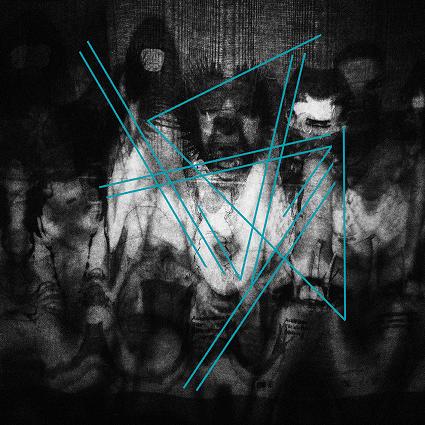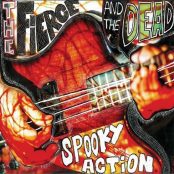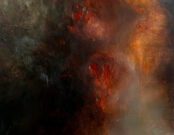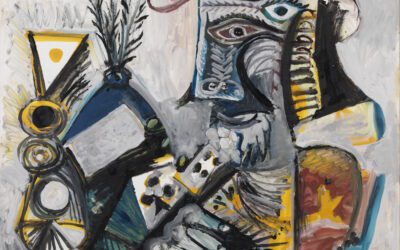[dropcap style=”font-size:100px; color:#992211;”]’I[/dropcap]have no choice but to keep getting up once knocked down, and to keep fighting. This is all I have’
– Dalglish, taking an approach to album promo that goes beyond the staple ‘we wanted to capture the energy of the live show’ soundbyte. With an album called Niaiw Ot Vile, the approach was never going to be standard.
Resident Advisor tells us that ‘Interviews with him aren’t exactly illuminating.’ Trebuchet begs to differ. Codex Europa asks the questions:
Dalglish ‘Oidhche’ (PAN 45) from PAN on Vimeo.
There’s a strong avant-garde spirit to the album, was there an influence from historical electro-acoustic and modern composition?
Dalglish : You have to be open to all things that come from outside yourself as well as within, be it historical influence or natural instinct. This is how you keep exploring. This is the primitive strength involved if you are true to yourself, regardless of style.
When everything gets labelled and made a style, a fashion, etc., I think it’s always foolish not to believe it existed long before. Most things have.
How important for you creatively has the connection with Autechre been?
Dalglish : I would say extremely important. There were a lot of times when what I did didn’t matter to anyone, because it wasn’t the popular style at the moment, and they were the only ones at that level to be supportive. We first met in 1995/96, when the environment in electronic music was very different than it is now.
I find a certain solace in both of our works, ideas, and I think regardless of what happens, we have the same constant need to explore. They haven’t influenced me in obvious, tribute-paying kind of ways, but in inspiring me to always dig deeper. Of course our careers have been entirely different, but I still feel a similarity in our philosophies towards music and working.
Their support has helped me continue during times of doubt, and there’s very little released that excites me as much as theirs.
There’s little obvious trace of your techno past here – how did it shape what you’re doing now?
Dalglish : When I was first exposed to techno, I saw its potential and the places it should be going. Everything felt so open at that time — where it could go was boundless and one could create their own future in any way they imagined. So I decided to make it my responsibility to do exactly that, to keep looking through these small, slightly opened windows and to add on to what was missing.
Why the name Dalglish? Is it a private reference or concept?
Dalglish : It’s a name that I took with no real reference point other than marking a direction to continue to explore all the vast and feared places most wouldn’t have the courage to go, to experience failure and to continue without the proof of validation or security.[quote]looking for contentment
in constant attempts
to establish a connection
to something which may
not even be real, and
finding at the end that
there’s still hope and drive[/quote]
The album is dedicated to your friend but is there a wider narrative to the album?
Dalglish : Diving into difficulty, appreciating being alone with little security or support, looking for contentment in constant attempts to establish a connection to something which may not even be real, and finding at the end that there’s still hope and drive. It’s better to be there than nowhere, not existing at all.
This is a natural reaction towards existence for everyone, of course, but I do think it’s stronger if you choose to dedicate your life to creating and exploring, because then it’s inescapable to be extremely insecure at times.
What types of audiences do you hope to reach with this?
Dalglish : I hope to reach those who see that there is always more to do, and to support those few who have made this their main focus. Many things have an appeal in a moment, but few will prove they can deliver for a longer period.
So for those that take the risk to do so, they should be supported, especially since there is so little support out there… which is strange if you think this should be the main drive behind doing anything honestly and creatively.
Where would you place Dalglish on the spectrum of electronic music?
Dalglish : A floating spectre within and throughout every aspect of it. A loyal subject who has taken a vow to some unproven, never seen force. To never be behind, to never be in the ‘now’ and to never stop exploring and sharing all deep discoveries upon partial, yet further damaged return. If this ends up to be a delusion, that is yet to be proven.
Possibly the truth is, there is no place for it.
Naturally, I’m terrified of this, but I have no choice but to keep getting up once knocked down, and to keep fighting. This is all I have.






















“In the now”, “being behind”, “in the future”, “Avantgarde” – it’s all irrelevant. Being honest and doing things that are exactly your cup of tea, what you want, that’s all how it should be 🙂
I mean there are guys out there who are doing techno which exactly sounds like all that love parade stuff from, say, 2002. If they honestly love it – why not. Probably will not make music develop in any way, but so what. Their consumers may be happy. It’s always just a fraction of artists who push things forward.
of course, but what is the problem here?